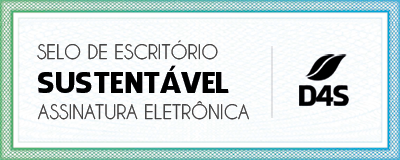
What documents do I need for the AIMA interview?
AIMA (the Immigration and Administrative Mobility Authority) is an essential body in Portugal that manages immigration, mobility and legalization processes for foreign citizens.
If you are planning to move to Portugal, AIMA will be one of your main points of contact to ensure that your documentation is in order.
This article offers a complete guide to the documents required for different types of interviews and processes at AIMA, especially for family reunification and residence permits. Follow this guide to prepare properly and make sure you have all the documents you need for a successful interview at AIMA.
Important information: pay attention to the formality requirements of the documents. Check what is being demanded. The rules are always changing. Pay attention to the date of issue, validity and the need for Hague authentication/affixing to documents
Documents Required for Different Processes
Family Reunification with a Family Member in National Territory – Art. 98, no. 2
The application for a residence permit must be made by appointment and submitted in person by the family member to be reunited or by the person entitled to family reunification. The family member must go to an AIMA store to have their biometric data taken. The application can be submitted at any AIMA Store after prior appointment and must be accompanied by the following documents:
Required documents:
- Residence permit for citizens residing in Portugal.
- Valid passport or other valid travel document.
- Proof of legal entry into Portugal.
- Certified proof of the family ties invoked.
- Two passport-sized photographs, in color, with a plain background, up-to-date and with good identification conditions (if the appointment is made at the AIMA Stores in Odivelas or Aveiro).
- A sworn statement of your residence address, stating under what terms you are living in the dwelling indicated (e.g. owner, tenant, subtenant, usufructuary, lender, among others).
- Owner or usufructuary: land registry certificate or access code to prove ownership or usufruct.
- Tenant or lessee: a statement from the landlord of the property or accommodation provider, stating the legal situation underlying the right to use the property.
- Proof of means of subsistence.
- Criminal record of the country of nationality of the family member to be reunited or of the country where they resided for more than one year before residing in Portugal, duly authenticated.
Specific documents:
- Certified marriage certificate.
- Medical report attesting to incapacity, or court declaration of interdiction/disability, duly authenticated.
- Decision decreeing adoption, duly authenticated.
- Certified birth certificate and, for adult dependent children, proof of economic dependence and enrolment in an educational establishment in Portugal.
- Written authorization from the non-resident parent authenticated by a Portuguese consular authority or a decision assigning the legal trust of the minor child or guardianship of the incapacitated person to the resident or his/her spouse.
- Proof of economic dependence and family relationship, such as transfers to the country of origin.
- Decision ordering the guardianship, accompanied by a duly authenticated certificate of the decision of the national authority that recognized it.
- Documents proving the existence of a civil partnership for more than 2 years.
Family Reunification with a Family Member Outside National Territory – Art. 98, no. 1
The request must be made by appointment and delivered in person after prior appointment, accompanied by the following documents:
Required documents:
- Residence permit for citizens residing in Portugal.
- Certified copy of the passport of the family member to be reunited.
- Certified proof of the family ties invoked.
- A sworn statement of your residence address, stating under what terms you are living in the dwelling indicated (e.g. owner, tenant, subtenant, usufructuary, lender, among others).
- Owner or usufructuary: land registry certificate or access code to prove ownership or usufruct.
- Tenant or lessee: a statement from the landlord of the property or accommodation provider, stating the legal situation underlying the right to use the property.
- Proof of means of subsistence.
- Criminal record of the country of nationality of the family member to be reunited or of the country where they resided for more than one year before residing in Portugal, duly authenticated.
Specific documents:
- Certified marriage certificate.
- Medical report attesting to incapacity, or court declaration of interdiction/disability, duly authenticated.
- Decision decreeing adoption, duly authenticated.
- Certified birth certificate and, for adult dependent children, proof of economic dependence and enrolment in an educational establishment in Portugal.
- Written authorization from the non-resident parent authenticated by a Portuguese consular authority or a decision assigning the legal trust of the minor child or guardianship of the incapacitated person to the resident or his/her spouse.
- Proof of economic dependence and family relationship, such as transfers to the country of origin.
- Decision ordering the guardianship, accompanied by a duly authenticated certificate of the decision of the national authority that recognized it.
- Documents proving the existence of a civil partnership for more than 2 years (certificate from the parish council; public deed of civil partnership, etc).
Residence Permit (Regime and General Requirements) – Article 77, paragraph 1
The application for a residence permit must be made by appointment (or via an electronic platform, which is currently being implemented for holders of residence visas) and submitted in person, accompanied by the following documents:
Required documents:
- Two passport-sized photographs, in color, with a plain background, up-to-date and with good identification conditions (if the appointment is made at the AIMA Stores in Odivelas or Aveiro).
- Passport or other valid travel document.
- Valid residence visa.
- Proof of means of subsistence.
- A sworn statement of your residence address, stating under what terms you are living in the dwelling indicated (e.g. owner, tenant, subtenant, usufructuary, lender, among others).
- Owner or usufructuary: land registry certificate or access code to prove ownership or usufruct.
- Tenant or lessee: a statement from the landlord of the property or accommodation provider, stating the legal situation underlying the right to use the property.
- Document proving family ties, where applicable.
- Proof of tax registration (NIF).
- Proof of social security registration (if applicable).
- Health insurance or proof of coverage by the National Health Service (health insurance is different from travel insurance).
For other purposes, the full list of documents can be found at https://aima.gov.pt/.



